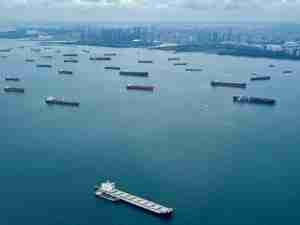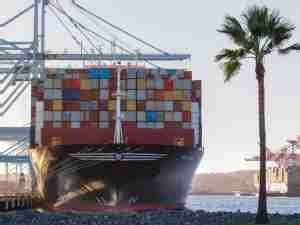Geneva – The social partners, namely the International Transport Workers’ Federation (ITF) and the International Chamber of Shipping (ICS), convened in Geneva at the Joint Maritime Commission (JMC) subcommittee on seafarers wages to review the International Labour Organization (ILO) Minimum Wage for an Able Seafarer (AB) provided for in Code B of the Maritime Labour Convention, 2006 (as amended).
The decision, following two days of negotiations, was to update the minimum wage for an able seafarer by USD27 over the next three years. The wages will provide an overall increase of 4.5 percent on the current rate of USD614, with an increase of USD4 as of 1 July 2019, followed by an increase of USD7 as of 1 January 2020 and a final increase of USD16 as of 1 January 2021.
Due to unforeseen circumstances, the meeting had been re-scheduled from June 2018. The social partners, with the support of the ILO office were presented with the current consumer price changes indices and the impact of the fluctuation of the USD in the countries, and agreed this would represent the basis for a formula for the calculation of the recommended minimum wage for an AB.
It was noted that during the period taken into account for the calculation the USD614, which is the current ILO minimum wage rate for an AB, was below the purchasing power stated in the ILO report prepared for consideration at the meeting.
The social partners provided reasoned arguments and economic forecasts to support their respective positions, including the volatility of the shipping industry, and the necessity to recognize the seafarers’ commitment and the need to agree fair and sustainable conditions.
“This was a difficult negotiation with two very different assessments about what the future holds for shipping and seafarers”, admitted Mark Dickinson, spokesperson for the seafarers’ group. “We started slowly but gained momentum as the parties exchanged opinions and provided arguments to support their positions. There was strong opposition from the shipowners’ side for a significant increase. However, I am pleased that at the end pragmatism and common sense prevailed and the social partners worked their way forward to recognise the fundamental role seafarers play within the industry.
“The principles of social dialogue, which is the basis of a more efficient, fair and progressive industry, were once again demonstrated by the unity of the maritime industry in securing an outcome which was acceptable by all parties. It is an example the social partners should be pleased with.”
Mr Dickinson added: “We will continue to work together to find ways to ensure that the ILO formula used as the basis for these negotiations is fair and reflects the reality for seafarers, but the impact of this session of the JMC negotiation on the global seafaring community is undoubtedly a good and equitable result.”
Max Johns, the shipowners’ group spokesperson, explained that following active discussions on the current difficult challenges facing our industry, and the importance of preserving future employment for seafarers, I am very pleased to advise that we were able to work together to come to an acceptable result for both parties”.










